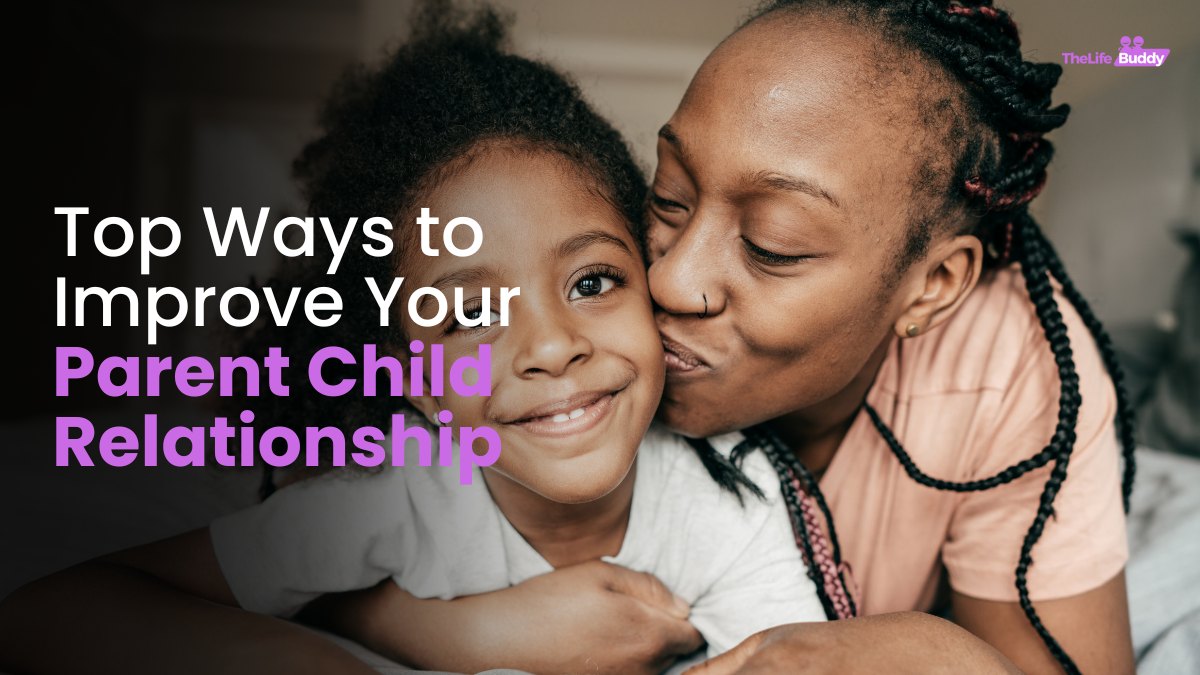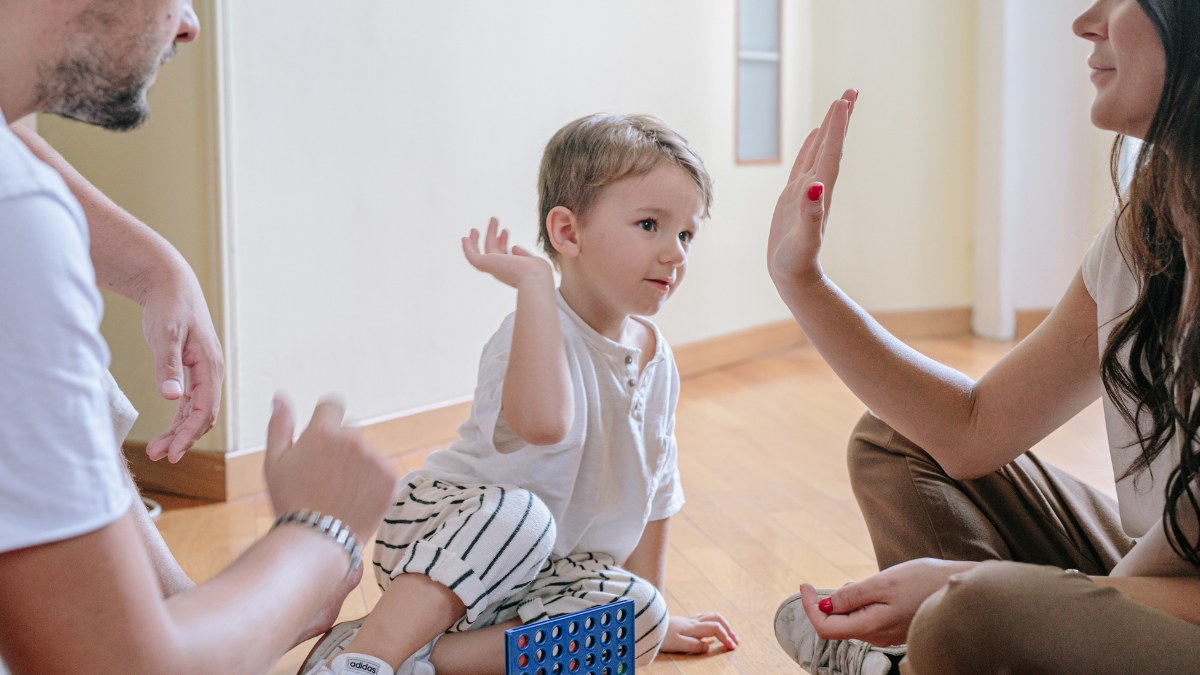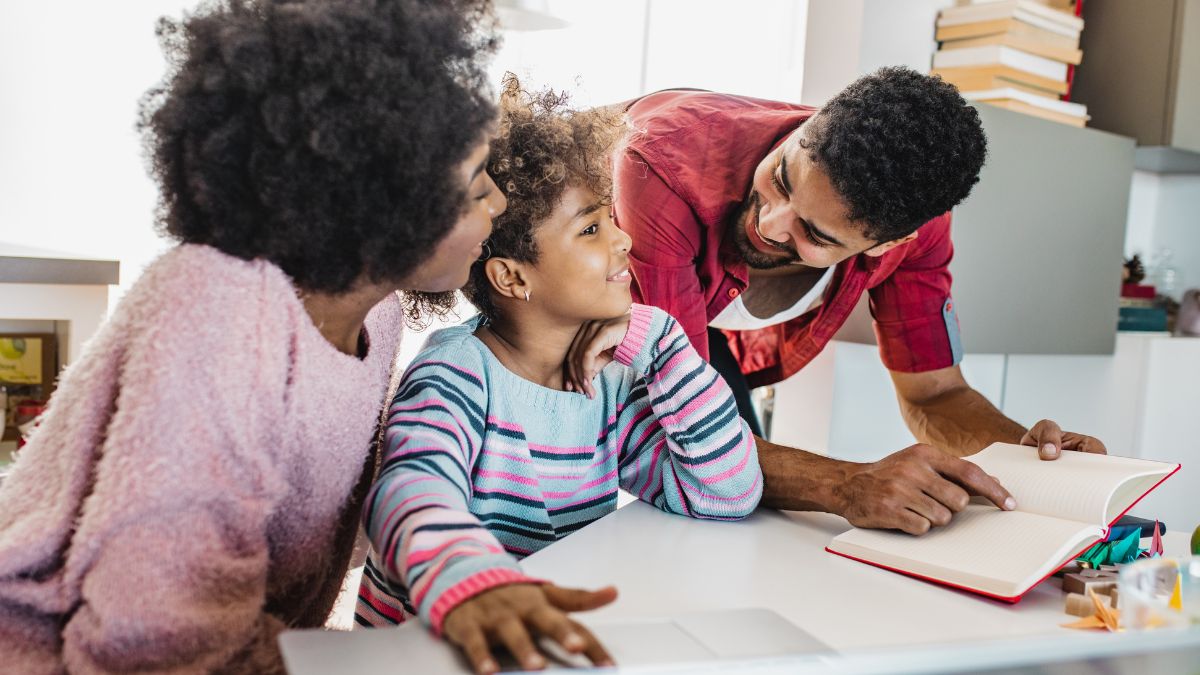Top Ways to Improve Your Parent Child Relationship

Parent-child relationships are one of the most influential factors in children's development and well-being. A positive relationship between parents and children can foster trust, communication, cooperation, and emotional regulation. However, building and maintaining such a relationship is not always easy.
Parents may face various challenges or barriers, such as busy schedules, conflicting expectations, or different personalities. How can parents overcome these obstacles and improve their relationships with their children?
In this blog post, we will explore the benefits and tips of enhancing parent-child relationships, as well as some examples of activities or strategies that parents can use to connect with their children.
Benefits of a Strong Parent-Child Relationship
Having a strong parent-child relationship can bring many benefits for both parents and children. Some of these benefits are:
- Trust: When parents and children have a strong bond, they are more likely to trust each other and share their thoughts and feelings. Trust can also reduce conflicts and misunderstandings, as well as increase support and cooperation.
- Communication: A strong parent-child relationship can improve communication skills and habits. Parents and children can learn to listen actively, express themselves clearly, and respect each other's opinions and perspectives. Communication can also enhance learning and problem-solving abilities, as well as emotional intelligence.
- Cooperation: A strong parent-child relationship can foster cooperation and teamwork. Parents and children can work together to achieve common goals, such as completing household chores, doing homework, or planning a family trip. Cooperation can also promote positive values and behaviors, such as responsibility, respect, and kindness.
- Emotional regulation: A strong parent-child relationship can help with emotional regulation and coping skills. Parents and children can provide emotional support and comfort to each other, especially during stressful or difficult times. They can also learn to manage their emotions, such as anger, sadness, or anxiety, in healthy and constructive ways.
Tips for Enhancing Parent-Child Relationships

There are many ways that parents can improve their relationships with their children. Here are some general tips that can apply to any parent-child relationship:
Spend quality time
One of the most important ways to strengthen parent-child relationships is to spend quality time together. Quality time means giving your full attention and presence to your child, without any distractions or interruptions. It also means engaging in meaningful and enjoyable activities that suit your child's interests and needs.
Quality time can be as simple as reading a book, playing a game, or having a conversation. It can also be as creative as making a craft, baking a cake, or going on an adventure. The key is to make your child feel valued, appreciated and loved.
Listen actively
Another essential way to improve parent-child relationships is to listen actively to your child. Active listening means paying attention to what your child is saying, as well as their body language and tone of voice.
It also means asking open-ended questions, reflecting back what you heard, and showing empathy and understanding. Active listening can help you learn more about your child's thoughts, feelings, and experiences. It can also help you build trust, respect, and rapport with your child.
Express affection
A third important way to enhance parent-child relationships is to express affection to your child. Affection means showing your love and care for your child through words and actions. It can include saying "I love you", giving hugs and kisses, or writing a note.
It can also include praising your child's efforts, achievements, and strengths, or giving compliments and encouragement. Affection can boost your child's self-esteem, confidence, and happiness. It can also make your child feel secure, accepted, and cherished.
Respect boundaries
A fourth crucial way to improve parent-child relationships is to respect your child's boundaries. Boundaries mean setting and honoring limits and rules that protect your child's rights, privacy, and autonomy.
It can include allowing your child to make choices and decisions, respecting your child's opinions and preferences, or giving your child space and time.
It can also include avoiding criticism, judgment, or comparison, or apologizing when you make a mistake. Respecting boundaries can help your child develop a sense of identity, independence, and responsibility. It can also help you avoid conflicts, resentment, and power struggles.
Examples of Activities or Strategies to Connect with Your Children

Besides the general tips mentioned above, there are also some specific examples of activities or strategies that parents can use to connect with their children. Some of these examples are:
Play together
Playing together is one of the best ways to bond with your child. Playing can stimulate your child's imagination, creativity, and curiosity. It can also help your child learn new skills, such as motor, cognitive, or social skills.
Playing can be fun, relaxing, and rewarding for both parents and children. You can play with your child in different ways, such as using toys, games, puzzles, or arts and crafts.
You can also play with your child outdoors, such as going to a park, a playground, or a beach. The key is to follow your child's lead, be flexible, and have fun.
Share stories
Sharing stories is another great way to connect with your child. Stories can spark your child's interest, knowledge, and imagination. They can also help your child understand different perspectives, cultures, and values.
Stories can be educational, inspirational, or entertaining for both parents and children. You can share stories with your child in different ways, such as reading books, watching movies, or telling anecdotes.
You can also share stories with your child from your own life, such as your childhood, your family, or your dreams. The key is to choose stories that are appropriate, relevant, and engaging for your child.
Create rituals
Creating rituals is a third way to connect with your child. Rituals are routines or traditions that you do regularly with your child, such as eating breakfast, saying goodnight, or celebrating a holiday. Rituals can provide structure, stability, and predictability for your child.
They can also create a sense of belonging, identity, and meaning for your child. Rituals can be simple, meaningful, and enjoyable for both parents and children. You can create rituals with your child in different ways, such as having a special meal, a special song, or a special activity.
You can also create rituals with your child that reflect your values, beliefs, or culture. The key is to be consistent, flexible, and creative.
Solve problems Together
One way to connect with your child is to solve problems together. Problems are challenges or difficulties that you or your child encounter in various situations, such as school, friendship, or personal growth.
When you solve problems with your child, you help them develop important skills like critical thinking, decision making, and coping.
You also help them feel more empowered, confident, and resilient. Solving problems can be a positive and rewarding experience for both of you, as you collaborate, support, and learn from each other. There are different ways to solve problems with your child, depending on the context and the goal.
For example, you can brainstorm solutions, evaluate pros and cons, or implement a plan. Whatever method you choose, the key is to be respectful, patient, and optimistic.
Final Words
Parent-child relationships are vital for children's development and well-being. However, they are not always easy to build and maintain. Parents can improve their relationships with their children by spending quality time, listening actively, expressing affection, and respecting boundaries.
They can also use some examples of activities or strategies, such as playing together, sharing stories, creating rituals, or solving problems.
By improving their parent-child relationships, parents and children can enjoy the positive outcomes of trust, communication, cooperation, and emotional regulation.
As the famous author and educator, Haim Ginott, once said, "Parents are the ultimate role models for children. Every word, movement and action has an effect. No other person or outside force has a greater influence on a child than the parent." Therefore, let us strive to be the best role models for our children and improve our parent-child relationships.
What are some ways that you have improved your parent-child relationship? Share your thoughts and experiences in the comments below!


